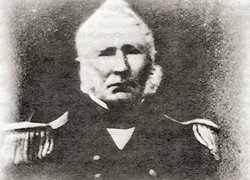Mary Jane Boarman in a Sunday letter to her father (January 21, 1872)
The people mentioned in Mary Jane's letter were her children Lloyd, Charley, and Nancy; her husband, William Henry Broome; her sisters Eliza, Anna, Laura, and Nora; her brother Frankie; and her nephew frontier physician Dr. Charles "Charley" Harris, son of her sister Susan.
John Broome and Rebecca Lloyd: Their Descendants and Related Families, 18th to 21st Centuries (2009)
Famous Charles Boarman Quotes
Testimony of Lieutenant Charles Boarman at the naval court of inquiry and court martial of Captain David Porter (July 7, 1825)
Minutes of Proceedings of the Courts of Inquiry and Court Martial, in relation to Captain David Porter (1825)
Robert Brent writing to then United States Secretary of the Navy Paul Hamilton endorsing Charles Boarman's application (August 1811)
A Gentlemanly and Honorable Profession: The Creation of the U.S. Naval Officer Corps, 1794-1815 (1991)
William N. Jeffers, Acting Secretary of the Navy 1879
Historical Records and Studies, Vol. VI (1911)
Charles Boarman, Sr. in a letter to Robert Brent, the mayor of Washington, D.C., asking for a letter of recommendation for his son's application to enlist in the United States Navy (1811)
A Gentlemanly and Honorable Profession: The Creation of the U.S. Naval Officer Corps, 1794-1815 (1991)
"Charley" Boarman's personal application sent along with his father's earlier letter
A Gentlemanly and Honorable Profession: The Creation of the U.S. Naval Officer Corps, 1794-1815 (1991)
